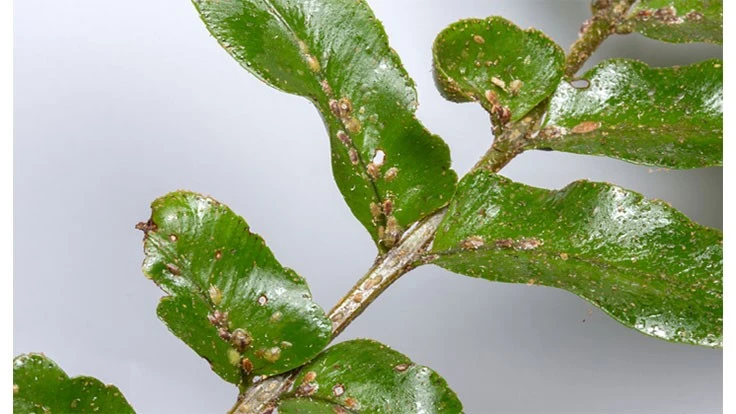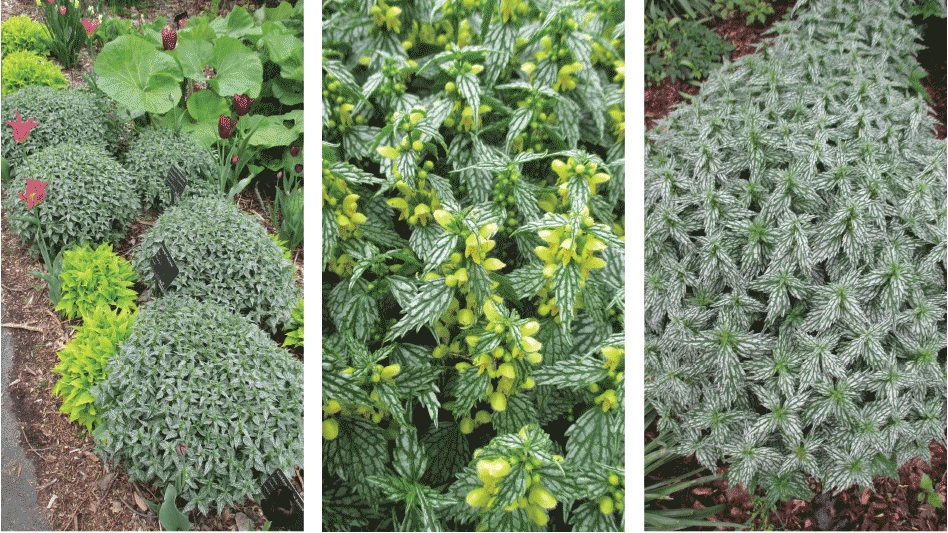
SD Frank

There are many insecticides and miticides on the market and more new products are delivered each year. Each new product may offer improved efficacy, lower human toxicity or both as selling points compared to older products. Increasingly, new insecticides and miticides also strive for compatibility with biological control programs by combining efficacy against pests with safety for natural enemies.
These are great strides and most products arriving on the market lately are much safer for everyone and everything involved than the old organophosphates, organochlorines and other products they replace. However, the rapid introduction of these advanced insecticides and miticides should not overshadow horticultural oils and insecticidal soaps that have always been, and continue to be, essential tools in an IPM program.
Horticultural oils and insecticidal soaps have been used for decades, even centuries, to manage pests in all sorts of crops. Horticultural oils are refined petroleum products. If you have been in the business for a while you may recall learning about dormant oils, which were only applied to dormant plants in winter, and summer oils which were lighter weight and applied during the growing season. This is not the case anymore. Today, most horticultural oils are highly refined to improve mixing and
Insecticidal soaps are potassium salts of fatty acids. I don’t know what that means either, but I know they are different from soap you use to wash your face or your dishes. Yes, there are many recipes online to make your own insecticidal soap, but to have confidence in the efficacy and crop safety of what you are spraying, it is worth purchasing the real thing. An advantage of insecticidal soaps and horticultural oils is that they are relatively inexpensive. So, spring for a reputable product.
The process
Horticultural oil kills insects and mites primarily by coating them and clogging their spiracles, which are pores they use to breathe. With cloggedWe have come to rely on systemic or translaminar, long-lasting, pesticides for managing insect pests like aphids, whiteflies
The advantages of horticultural oils and soaps

Targeted pests
Every pesticide has disadvantages. Horticultural oils and soaps are primarily effective against small, soft and slow arthropods. Luckily this includes a lot of the key pests you battle including aphids, whiteflies, mealybugs, thrips, spider mites
Horticultural oils and insecticidal soaps are effective against a similar array of pests. Remember small, soft and slow. Scale insects are a unique group of pests that are frequent targets of oil and soap applications but even though they are small and slow may be covered in tough armor. Recent research from Cliff Sadof’s lab at Purdue University shows that the type of scale insect matters when choosing between horticultural oil or insecticidal soap. The reason has to do with scale insect morphology which we should cover very quickly.
Scale insects are common pests that feed on plant fluids. The most common types are armored scales that have a hard, waxy cover and soft scales that have, you guessed it, a softer cover. Scale insects do not move much. Armored scales move once in their life as newly hatched nymphs called crawlers. These tiny scales crawl from beneath their mother’s armor, with no cover at all, to find a place to feed. Then they settle, insert their mouthparts into the plant, and start sucking out juices. Many soft scales can move a little as adults, but they still have tiny unprotected crawlers that hatch from eggs and have to find a place to settle and feed.
What does this mean for management? Armored scales like euonymus scale, pine needle scale, false oleander scale

IPM toolbox
The critical thing for managing scale insects and most pests is classic IPM techniques of scouting, monitoring, and record keeping to determine when pests are present and in susceptible life stages. So even though armored and soft scales have different susceptibility to horticultural oils and insecticidal soaps they both have tiny unprotected crawlers. These can be killed by anything. In the wild, rain is one of the greatest causes of scale crawler mortality. So, if you are monitoring for scales and notice when eggs are hatching any product will do. Then you may want to follow up with another application in a week or two to reduce the abundance of those that hatched after your first application.
Horticultural oils and insecticidal soaps can be valuable tools in your IPM toolbox. They may not be as effective or
Steve Frank is Professor and Extension Specialist in the Department Entomology and Plant Pathology at North Carolina State University. You can reach him at sdfrank@ncsu.edu. For more information on nursery and landscape IPM visit http://ecoipm.org.

Explore the December 2018 Issue
Check out more from this issue and find your next story to read.
Latest from Nursery Management
- NewGen Boxwood added to Proven Winners ColorChoice line
- Terra Nova releases new echinacea variety, 'Fringe Festival'
- American Horticultural Society names winners of 2025 AHS Book Awards
- Nufarm announces unified brand
- American Horticultural Society announces winners of 2025 Great American Gardeners Awards
- Shifting the urban environment
- The Growth Industry Episode 3: Across the Pond with Neville Stein
- What's in a name?






